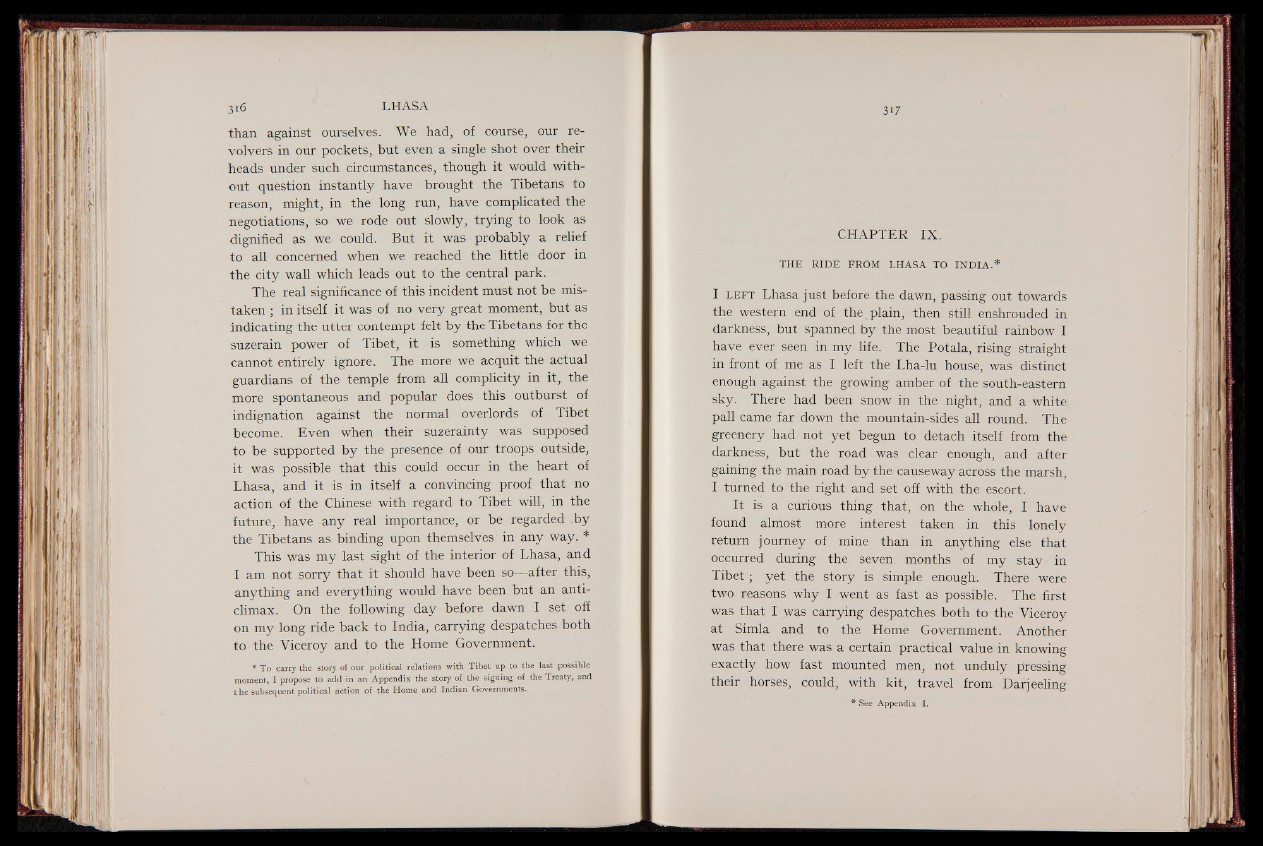
than against ourselves. We had, of course, our revolvers
in our pockets, but even a single shot over their
heads under such circumstances, though it would without
question instantly have brought the Tibetans to
reason, might, in the long run,- have complicated the
negotiations, so we rode out slowly, trying to look as
dignified as we could. But it was probably a relief
to all concerned when we reached the little door in
the city wall which leads out to the central park.
The real significance of this incident must not be mistaken
; in itself it was of no very great moment, but as
indicating the utter contempt felt by the Tibetans for the
suzerain power of Tibet, it is something which we
cannot entirely ignore. The more we acquit the actual
guardians of the temple from all complicity in it, the
more spontaneous and popular does this outburst of
indignation against the normal overlords of Tibet
become. Even when their suzerainty was supposed
to be supported by the presence of our troops outside,
it was possible that this could occur in the heart of
Lhasa, and it is in itself a convincing proof that no
action of the Chinese with regard to Tibet will, in the
future, have any real importance, or be regarded .by
the Tibetans as binding upon themselves in any way. *
This was my last sight of the interior of Lhasa, and
I am not sorry that it should have been so— after this,
anything and everything would have been but an anticlimax.
On the following day before dawn I set off
on my long ride back to India, carrying despatches both
to the Viceroy and to the Home Government.
* To carry the story of our political relations with Tibet up to the last possible
moment, I propose to add in an Appendix the story of the signing of the Treaty, and
the subsequent political action of the Home and Indian’ Governments.
CHAPTER IX.
THE RIDE FROM LHASA TO INDIA.*
I l e f t Lhasa just before the dawn, passing out towards
the western end of the plain, then still enshrouded in
darkness, but spanned by the most beautiful rainbow I
have ever seen in my life. The Potala, rising straight
in front of me as I left the Lha-lu house, was distinct
enough against the growing amber of the south-eastern
sky. There had been snow in the night, and a white!
pall came far down the mountain-sides all round. The
greenery had not yet begun to detach itself from the
darkness, but the road was clear enough, and after
gaining the main road by the causeway across the marsh,
I turned to the right and set off with the escort.
It is a curious thing that, on the whole, I have
found almost more interest taken in this lonely
return journey of mine than in anything else that
occurred during the seven months of my stay in
T ib e t ; yet the story is simple enough. There were
two reasons why I went as fast as possible. The first
was that I was carrying despatches both to the Viceroy
at Simla and to the Home Government. Another
was that there was a certain practical value in knowing
exactly how fast mounted men, not unduly pressing
their horses, could, with kit, travel from Darjeeling
* See Appendix I.